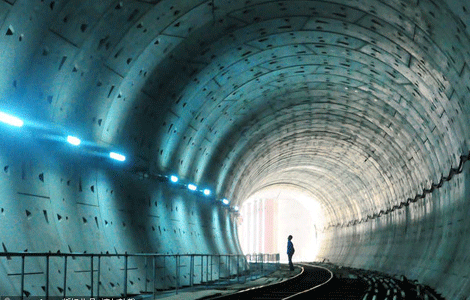|
|||||||||
BEIJING -- In a year of political transition, expectations for explosive news and reviews coming out of China's annual political season will, possibly, prove unfounded.
Stability, in terms of both politics and economics, is expected to become a buzzword surrounding this year's sessions of the nation's top legislature, the National People's Congress (NPC), and advisory body, the Chinese People's Political Consultative Conference (CPPCC), as the two annual sessions will be held just months prior to the 18th National Congress of the ruling Communist Party of China (CPC), which will result in a reshuffling of the country's top leadership.
Stability is particularly important for China as it navigates choppy global financial waters. With a faltering external environment taking a toll on the Chinese economy, China has acknowledged that maintaining stability while making progress is the theme for the economic and social work of 2012.
At the upcoming sessions, China is not expected to map out a high economic growth target for 2012. Deep-seated problems springing from decades of breakneck growth have kept the world's second-largest economy from achieving sustainable development.
In the nation's 12th Five-Year Plan (2011-2015), the government lowered the annual economic growth target to 7 percent, and some provinces lowered their growth targets at the just-concluded NPC and CPPCC provincial sessions, as well.
Both moves show that a consensus has been reached that blistering growth based on an outdated development model is no longer desirable, and the self-directed slowdown leaves more room for China's economic restructuring -- a top priority in the years ahead of 2015.
Meanwhile, these problems -- over-reliance on investment and export, tepid domestic consumer spending, unfair treatment facing private businesses, excessive control exerted by state-controlled industries, weak innovation, and environmental pressures, among others -- in the development model are not new. If not handled properly, these problems could render China's previous efforts irrelevant, or worse, ignite social conflicts.
No easy solutions are expected to be found during this year's two sessions, but the government's determination to seek answers cannot be questioned.
It is widely hoped and believed that the government will continue to increase spending related to improving people's lives and make more concrete efforts to bolster the small business sector. It will also hopefully make efforts to stabilize foreign trade, but not intentionally seek a trade surplus, which has already become a burden. And it should reach out to foreign investors, as the government understands that the principal of mutual benefit should prevail in times of crisis.
More urgently, however, the government will look to accelerate domestic reform after already pledging to work out detailed policies in the first half of this year to encourage private capital to enter fields that had previously been monopolized by the state, including railways, energy and telecommunications.
Thirty years of opening up and reforms have made China's economic success possible, but now China stands at the crossroads of a new round of reforms meant to remove old barriers and unleash a new vitality.
The reform process has and will continue to encounter twists and turns, as it will inevitably meet resistance from vested interests groups. However, the country's leadership knows that it is necessary to unswervingly push forward reform, and China's market economy reform can not afford a reversal.
The two sessions are good platforms for the voices of the nation's political elite and grassroots representatives to be heard. With their experience and wisdom, China will find a better way to cope with new challenges.
Related Stories
Legislative sessions open to press 2012-02-26 20:30
Lawmakers satisfying constituencies' needs 2012-02-28 08:06
China to hold annual 'two sessions' 2012-02-21 21:15
- Two Chinese workers kidnapped in Cairo
- 16 charged in illegal organ scam
- Stability a buzzword for sessions
- Charities open to religious groups
- Japan told to stop unilateral surveys
- DPRK to suspend nuclear activities
- China adopts new rules to combat pollution
- China urges Japan to stop East China Sea research
Hot Topics
Wu Ying, iPad, Jeremy Lin, Valentine's Day, Real Name, Whitney Houston, Syria,Iranian issue, Sanyan tourism, Giving birth in Hong Kong, Cadmium spill, housing policy
Editor's Picks

|

|

|

|

|

|







